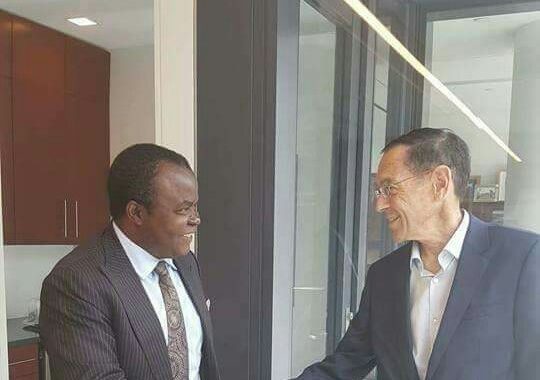WHAT IS IT THAT MADE NIGERIA MUCH LESS THAN IT COULD HAVE BEEN?
The recent development in Nigeria where a democratically elected president suspended the constitution of the country in order to remove the nation’s Chief Judge is not only worrisome but regretable. Where did we got it wrong?
Since the Nigerian civil war, when Emeka Ugwuonye was just a baby, throughout his days as student in America, he always pondered about Nigeria. He wondered why a country so well endowed would be so poor and so violent and so self-destructing. He would go to bed thinking about this and would wake up more confused. This was the case for him because in some of classes at Harvard, the discussions was always about how to build and run a modern country. He sought answers in philosophy and history: “What is it that made the country of Nigeria much less than it could have been?” No answers……
As he narrated, in 1996, he was the Regional Coordinator for the then Harvard Institute for International Development (now, simply, Harvard Institute). This is the consulting arm for the Harvard University. Its work was to implement American government funded development agenda for developing countries. He was the regional coordinator for Africa, which meant that all HIID’s work in Africa was on his desk. He was 27-years old then, and seemingly too young for the position. But his Harvard Law School education made him acceptable for the job. He would travel all over Africa advising top government officials up to the Presidents. For them, they would speak about the Harvard expert coming to advise their countries.
He noticed then, each time he landed in a country on a mission, before any formal deliberations, somebody must ask the question: “When will Nigeria get its acts together and lead the continent?” They would look at him as if he was supposed to have an answer to that question. Indeed, in a sense, that question according to him was also a way to put him down. “Here you came all the way from Harvard to advise us on how to govern ourselves, but you are a Nigerian and your country is in a mess. So physician heal thyself”. That was often the secondary meaning he gave to those remarks.
As his thoughts about Nigeria grew deeper and deeper, it occurred to him that the greatest setback Nigeria had suffered was that it never rose beyond the tribes. Nigerians never learned to think above their tribal interests. He felt that if we could change the mindset of majority of Nigerians and get them to think beyond the tribe, we would have a country that would stand up shoulder to should with China. “Why did he choose to say China?” He queried in a rhetorical form. In 1994, he had many Chinese students as classmates. He was part of the intense debates going on then about China and its options for development. He understands the processes that placed China on the spectacular path of development that we see today. So, it is a process that could be replicated.
“So, how do we get Nigerians to think beyond the tribes?” he asked. He knew to achieve this, we must make JUSTICE the foundation and EQUALITY the cornerstone of the Nigerian project. DPA is thus an important experiment, which is getting to work. When he read where Segun and Lawal are happily referring to Emeka Ugwuonye as their leader in DPA and
read where Umar and Bashir are referring happily to Emeka Ugwuonye as their leader, and read where Obinna and Okoro are referring to Emeka Ugwuonye as a monster; then he knows that DPA is achieving results. People are beginning to think beyond their tribes. This is what makes him happy about DPA – that people can see things beyond their tribal ties.
Today, Ugwuonye has stamped his feet on the sand of time. The revolution has already began. DPA is making waves. His brand of teaching methodology is unparalleled. He is producing critical thinkers to change the face of Nigeria beginning from the Nigeria’s Justice system.
Ifeanyi Calistus
Director of Information
DPA

